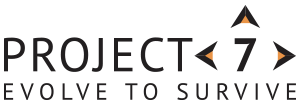Our Client is one of the world’s largest and most respected first tier Engine Valve manufacturers in the automotive industry, supplying valves to most major car manufacturers, across the globe.
The vehicle engine components market has grown ever more competitive in recent years, with an increase in scrap rates and high levels of finished product, compounded by a decline in performance and increasing competition from low-cost manufacturers.
As such, our Client needed to identify new and improved processes to help increase and sustain performance. Project7 [P7] commenced engagement with the Client in 2009, with the aim of coaching and integrating a Lean Leadership Programme that would boost productivity and strengthen equipment reliability.
The company were facing significant challenges that stemmed from the lack of a clearly defined, standardised operating system throughout their plants. As a result, an inconsistent variation of processes, systems, product quality and delivery outputs existed – impacting negatively on customer confidence.
The Client desperately needed access to Lean tools & principles in order to create a standard foundation for business Operational Excellence, across their Engine Components division.
In order to improve business performance and tighten engineering processes, intervention from P7 needed to include;
- Creation of a standard foundation for Operational Excellence.
- Integration of an effective engineering maintenance process – to improve asset management and equipment availability.
- Identification of the right processes combined with the right people to achieve sustainable performance output.
This would be achieved via a Back to Basics approach focusing upon the core manufacturing business.
After assessing their options, the Client and P7 decided upon a solution; to create and deploy a Lean Plant Leadership Programme [LP2 ].
In order to overcome the key challenges, P7 were assigned with designing, implementing and evaluating a world class operating system that would be standardised and applied throughout their 14 manufacturing sites, on a global level.
This solution would enable the Client to deliver the required effective performance targets against safety, quality, delivery, cost and staff, through the creation of a high-performing team culture.
Project7’s proposed solution consisted of the seven steps of the P7 Way:
- Strategy into Action [Policy Deployment]
- Tiered Visual Performance Management [TVPM]
- Short Interval Control & Performance Dialogues
- Process Confirmation & Go Look See
- Setting Clear & Aligned Targets; Problem-solving Level 1
- Coaching for Success; Problem-solving Level 2
- Talent Management and Leadership Development
The team’s task was to adapt and implement these seven steps through the creation of a Lean Plant Leadership Programme, thus creating an Engine Components Operating System.
Project7 worked closely with the executive team to clearly define the Client’s needs. The performance improvements identified focused upon developing the organisation through the implementation of Lean techniques and best practice, across operations and engineering maintenance departments.
Within each site, a master schedule was created with the local sites leadership teams, which drove the activities that could be measured against performance [Operational Performance Rate]. Clear directional targets were then set out and processes created.
Each site had a 4-month implementation period for the delivery of LP2 , based upon our 3P approach.
- Interim Plant Management – Provision of Senior Management to take accountability for business turnaround.
- Capability – Talent management and knowledge transfer through 4 Step Knowledge Transfer methodology.
- Structure – Line back spans of control, structure, roles & responsibilities and visual demarcation, management by location.
- Yokoten – Global sharing of best practices including go look see.
- Governance – Tiered communication and governance schedules supported by Standard Delivery.
- Hoshin Kanri – Facilitation and development of annual strategy, tactics and objectives. Design and Implementation of the KPI tree and BSC.
- Tiered Visual Performance Management – Regular candid performance dialogues at all levels and functions to turn data into information, information into knowledge, make decisions, define the resulting actions and tangibly measure the results.
- Short Interval Control – Implementation of hour to hour controls, quality and performance measurement linked to escalation [evolving into Andon].
- Kaikaku – Design and implementation of new processes including TPM, PM regimes, Maintenance Satellite
- and Line Patrol to support OEE improvement and sustainability.
- Problem Solving – Local team 3C and systemic problem resolution training, implementation and integration into the structured governance system.
As a result of project support and implementations from P7, the Client has achieved significant improvements in business performance, including;
- 31% Improvement in Overall Equipment Effectiveness
- 4% Reduction in Scrap
- 67% Reduction in Premium Freight
- 7% Reduction in Temporary Resource
- 21% Reduction in Change Overtime, Hit to Hit
- 33% in Equipment Cycle Time [Bottleneck]
- $24m Cost Avoidance in Capital Investment
- 21% Reduction in Finished Goods Inventory
- 11% Reduction in Overtime

